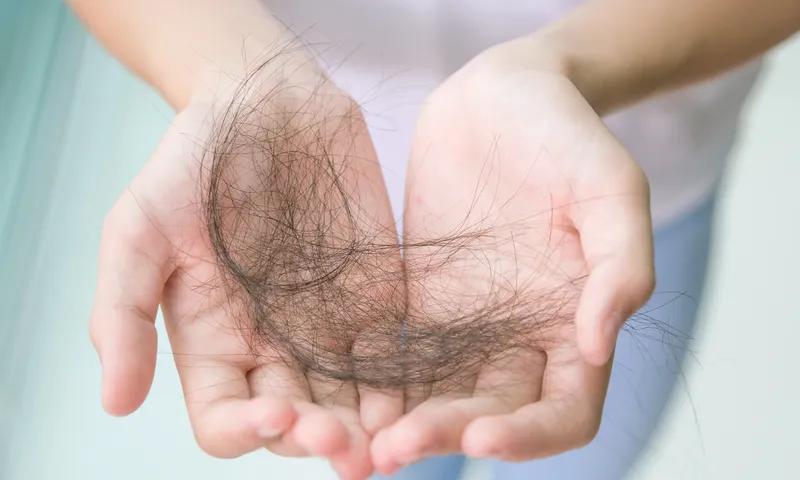How to Stop Hair Loss from Ulcerative Colitis

Living with ulcerative colitis (UC) brings a wide range of challenges, from managing digestive symptoms to coping with fatigue and flare-ups. For some people, another unexpected concern arises: changes in hair health. Many patients wonder, does ulcerative colitis cause hair loss, and if so, what can be done about it? While UC primarily affects the digestive tract, the condition and its treatments can also have ripple effects on hair growth.
Does Ulcerative Colitis Cause Hair Loss?
The short answer is yes, but usually not directly. UC is an inflammatory bowel disease, and chronic inflammation can disrupt many body systems, including hair follicles. Beyond inflammation itself, several contributing factors can affect hair health. Nutritional deficiencies are a major concern, since UC flare-ups may interfere with the absorption of vitamins and minerals like iron, zinc, folate, and vitamin D, all play an important role in maintaining strong, healthy hair.
Medications used to treat UC can also play a role. Drugs such as corticosteroids, immunosuppressants, and biologics may list hair thinning or shedding as a possible side effect. While not everyone experiences this, those who do may notice hair loss during medication changes or periods of higher dosage. Stress is another piece of the puzzle. Living with a chronic illness often increases both physical and emotional stress, which is a known trigger for temporary hair shedding known as telogen effluvium.
How to Stop Hair Loss from Ulcerative Colitis
If you’re noticing changes in your hair while managing UC, there are several steps that may help improve the situation. The first and most important step is to speak with your healthcare provider. They can check whether your hair loss is due to medication, nutritional deficiencies, or another underlying issue. Blood tests can reveal if you’re low in iron, vitamin B12, or other essential nutrients that support hair growth.
Nutrition is often key. A well-balanced diet rich in protein, leafy greens, and foods fortified with vitamins can make a noticeable difference. In cases where deficiencies are present, supplements may be recommended. Working with a registered dietitian who understands inflammatory bowel disease can provide personalized guidance.
Medication management is another factor. If a specific drug is contributing to hair loss, your doctor may adjust the dosage or suggest alternatives. Never stop or change your medication without medical advice, but know that adjustments are sometimes possible.
Stress reduction can also support hair health. Practices like mindfulness, yoga, or even light daily exercise may not stop UC flare-ups, but they can lower stress-related hair shedding. Adequate sleep is equally important, as your body needs rest to repair and restore both internally and externally.
In some cases, dermatologists can provide topical treatments, such as minoxidil, to stimulate hair regrowth. These options should be discussed in the context of UC to ensure they’re safe and appropriate for your overall treatment plan.
Bottom Line
While ulcerative colitis can cause hair loss indirectly through various factors, it doesn’t always lead to permanent changes. Understanding the root cause is key to managing the problem effectively. With medical support, a balanced diet, and stress management, many people see improvement over time. If you’re struggling with hair changes alongside UC symptoms, talk to your doctor about solutions that fit your individual needs.
IMPORTANT NOTE: The above information is intended to increase awareness of health information and does not suggest treatment or diagnosis. This information is not a substitute for individual medical attention and should not be construed to indicate that use of the drug is safe, appropriate, or effective for you. See your health care professional for medical advice and treatment.


